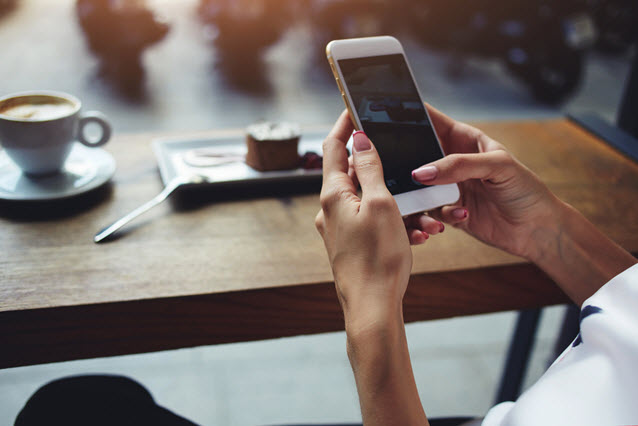Is Your Phone Stressing You Out? Here’s How to Take Back Control
Between worrying about family, our health and our finances, we can get caught in an endless cycle of stress and worry. Of course, these life stressors aren’t the only things that can rob us of peace of mind. At some point, your phone could become a source of anxiety and stress, although you may not even realize it.
In fact, while your phone isn’t the direct cause of stress, it is a conduit that funnels stress to the palm of your hand. From finances to work emails and more, it can be the bearer of bad news, a ticking clock reminding you of deadlines or a drain on your wallet.
Here’s a look at how exactly your phone can stress you out, and how you can fight back.
1. Our phones can contribute to poor time management.
Let’s face it. Our phone can be one of the biggest distractions in our life. It goes everywhere we go; and with constant notifications, vibrations and buzzing, there’s always the urge to take a peek and see what’s happening with our social media feeds and email.
Using our devices is a fun way to pass time. But like any other distraction in life, it can cause procrastination and keep us away from work and other personal matters. We might begin to put off important things little by little because we’re busy browsing and tapping. And the longer we procrastinate, the harder we make our lives. We’re less productive, cramming more things into fewer minutes and then complaining about there not being enough time in the day. But the truth is, there’s probably plenty of time, we’re just not using it wisely.
Instead of distracting ourselves endlessly – put an end to it! Have some dedicated phone time in your life where you allow yourself to be distracted, relaxed and unaware of anything else. It could be an hour or it could be a few minutes. Once your time is up, put your phone away and get back to the important things, whether that’s work or family.
2. Our phones can makes us feel inferior to others.
One benefit of having a cell phone is being able to stay in touch with friends and family, no matter their location. When you follow each other on Facebook or Twitter, even when you haven’t spoken in a while, you still feel connected to these people. And this is a good thing. But at the same time, these endless photos, updates and videos on social media can make us feel like we’re missing out on life.
After hopping on your newsfeed, you may quickly feel your good mood deteriorate as you see photos of people at outdoor events or other hangout spots living life and having a good time. If you’re not able to travel, shop or spend as much money on lively entertainment, you could start to feel bad about your own life, feeling more socially isolated despite being more digitally connected than ever.
This is one of the dangers of social media. Keep in mind, however, people mostly post about the high points in their lives, and rarely the lows. Before you assume others are enjoying a more fulfilling, happier life, remember that what’s posted online is rarely an accurate representation of people’s norm.
Instead of comparing your life to the happy facade you see online, try connecting IRL. If you see a friend having a great time, call that person or send them a message. See if you can connect for dinner or a concert and join in on the fun! And, most important, remember that what you see online isn’t always the most accurate truth.
3. Our phones keep us constantly connected to our work.
Before smartphones, most people could leave work at the end of the day and not think about the office until the next day. Today, it’s not unusual for employees to be connected to their jobs 24/7. If you fall into this category, your work situation might be contributing to your stress.
Even if you enjoy your job, constantly feeling like you’re on-call means you’re always working. Work emails pop up on your cell phone throughout the weekends and evenings and you likely feel compelled to reply.
Although your cell phone lets you work on the go, it’s important to set limits. If possible, disable work emails on your cell phone. Don’t take calls from colleagues unless you absolutely have to. Don’t reply to messages and try not to get sucked back into work when you’re home. It’s important that your home and work lives are separate – you’ll relax more while at home and you’ll be more productive while you’re at work.
Most people love their gadgets. But the more we allow our cell phones to take center stage in our lives, the more likely we’ll deal with distractions, procrastination and other situations that invoke anxiety and stress. So learn how to put some distance between you and your phone. Your mental health will thank you.
